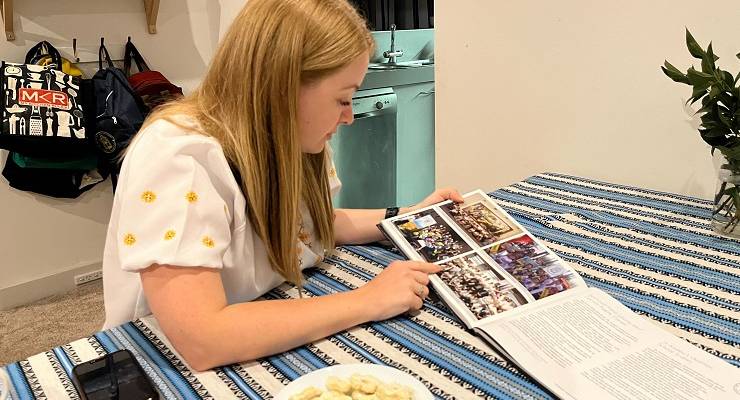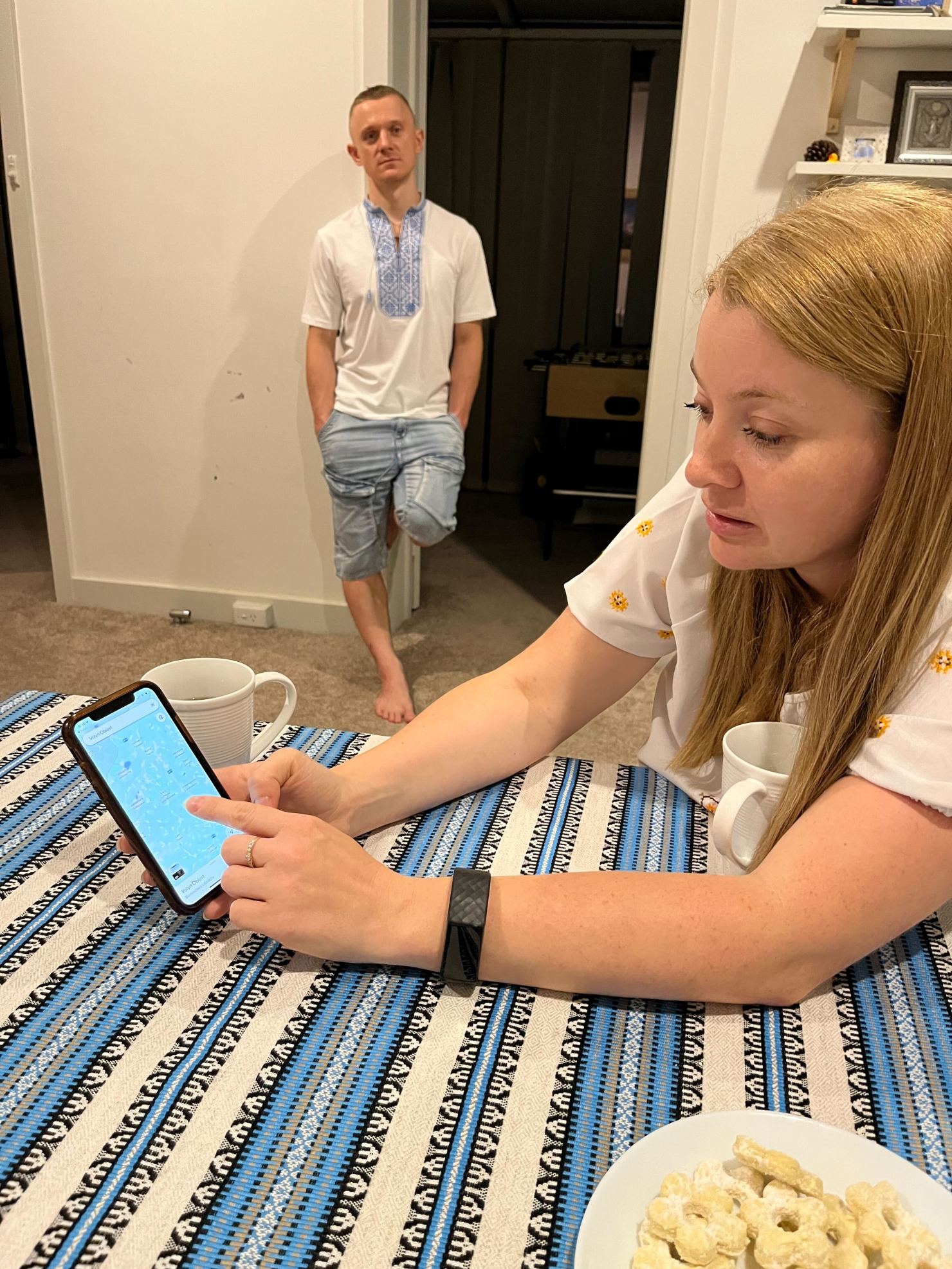
Julia Semeniuk has been glued to the news for weeks now. She nearly jumps out of her skin when her phone buzzes on the table with the promise of news from her parents, Ivanka and Vasyl, in Ukraine. She spends every spare second scrolling to keep up with the unfolding invasion of her home country.
“We cannot sleep — every time we lie down, I dream about war. And during the day, we cannot settle, we check the news at every available moment.”
On Friday morning in Australia, global media are reporting 137 citizens and soldiers dead and hundreds more wounded.
Julia was at work when the news broke in the early hours of the Ukrainian morning that the invasion had begun.
“I was shocked. I started shaking when I couldn’t get on to my mum at first — it was so strange because I knew what was happening before she did, because the attacks started in other parts of the country while she slept.”

Julia and her husband, Petro, moved to Australia in 2010 for a fresh start and now have two young sons. But their entire immediate and extended family are in Ukraine, including parents, siblings, nieces and nephews. The families are safe for now, but like much of Ukraine they are on the move: “Everyone is trying to get out of the cities, looking for quiet areas and villages to find shelter and figure out what to do next.”
Julia’s family is based in and around Lviv, a city in the far west of Ukraine, where many assumed they would be safe from attacks, at least initially. She was “stunned” when she heard missiles were landing close to Lviv. She hopes to get her family to come to Australia, but travelling is difficult, and her young nephew doesn’t have a passport. Julia hopes the Australian government will offer visa assistance to Ukrainians and help reunite families of Ukrainian-Australians.
Julia and Petro say they are grateful to be a part of a strong Ukrainian community in Sydney during this time, and Petro points out that they have many Russian friends who have reached out to offer their support. He says there’s no nationalistic tensions to be found here. The way he sees it, “It’s not Russia, it’s Putin.”
Generations of oppression
Andrew Mencinsky, a representative of the Ukrainian Council of NSW, has a niece in Kyiv and extended family in Kyiv and Lviv. He’s been keeping in touch and offering support where he can.
Mencinsky says his family has been “preparing for an escalation for the last eight years” as they have seen history repeating itself. His first cousin once removed, Myroslav, was a political prisoner for 10 years in the 1970s. He is now a vice-rector at the Ukrainian Catholic University in Lviv and a community leader.
Over the past decade, Myroslav has observed the increasing incursion of Russia into Ukrainian life. “He told me how Ukrainian museums started shutting down, that police were visiting the university and suggesting they didn’t like the teaching practices, and it reminded him of the Soviet Union days,” Mencinsky says.
“They’ve felt the yoke of oppression for years.”
As for Australia’s response, he says the Ukrainian-Australian community is grateful for the government’s support: “The sanctions to date are a starting point, but they need to ramp up the economic sanctions extensively,” he says.
“We want to see sanctions on par with the level placed on Apartheid-era South Africa — they should be withdrawn from international sport properly, for a start. On a global scale, we want to see Russia removed from the SWIFT payments platform — isolate them financially and scale up the sanctions to 10.”
Whatever happens, Mencinsky says Ukraine won’t be taking it lying down.
“They are prepared, and they will do whatever it takes to stand up to the invasion.”








The Victorian Country Hour heard from one in the Latrobe Valley this morning…….but that wasn’t Sydney of course.